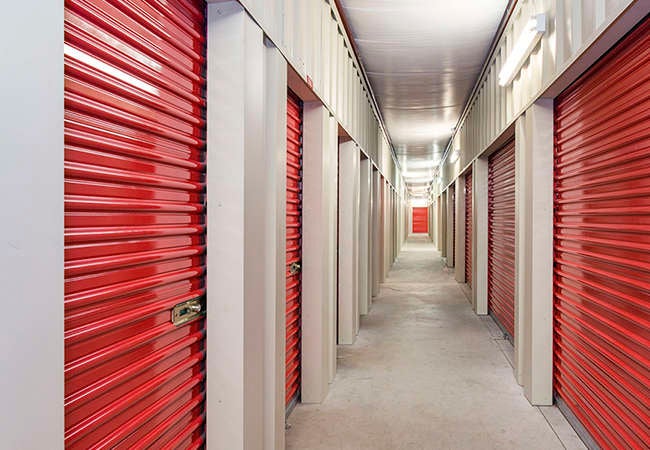We may earn revenue from the products available on this page and participate in affiliate programs. Learn More ›
Store with Care and Caution

Storage units come with some written and unwritten rules to protect both the facility and the items in storage. A storage unit isn’t exactly like a home. It may not get checked every day, or even every month, so if there’s a problem, it’s possible it might not be discovered for some time. There may or may not be temperature control, so sensitive items could be at risk of heat or cold damage. Extra care and caution must be taken not only in packing a storage unit, but deciding what can safely go inside it.
Food

Perishable food items can spoil or rot, causing unpleasant odors the next time the door gets opened. Opened or unsecured food can also attract rodents, which can chew through a surprising number of materials, including plastic. It’s best to store food only in a temperature-controlled environment that gets checked regularly.
Hazardous Materials

Ammunition, explosives, and radioactive materials fall under the category of hazardous materials. Anything that can explode or cause irreparable harm to the storage facility probably doesn’t belong in a storage unit. Most storage facilities include a list of materials that are prohibited inside the unit or on facility grounds.
Wet or Damp Furniture or Clothing

Maybe it downpoured the day furniture was moved in, or wet laundry hitched a ride inside a laundry basket. Wet or damp furniture and clothing easily gather mold and mildew while in storage. Fabrics aren’t the only potential mildew generator. Tents, sleeping bags, plastic, or any material that traps and holds moisture could grow mold. Before locking it up, make sure it’s dry.
High Value Items

Storage facilities often provide video surveillance, a security guard, and access codes to protect stored items. However, they’re not foolproof, and thieves know it. A storage unit isn’t the place for grandmother’s priceless pearls or irreplaceable antiques. The storage facility’s insurance policy may not cover these types of items. It’s best to store them somewhere more secure like a locked safe.
Related: 9 Documents to Keep Locked Up
Unregistered Vehicles

Storing unregistered vehicles constitutes a violation of most rental agreements. Some storage facilities require the vehicle to either be in running condition or loaded onto a trailer. Others may require the vehicle be licensed and insured to the person listed on the rental agreement. Make sure the vehicle meets all requirements, and that it actually fits in the unit, before signing the papers.
Flammable Materials

Flammable materials fall under the same category as hazardous materials. They’re dangerous for the items in the storage unit as well as the storage facility. Explosive gases, liquids, and even aerosol sprays don’t belong in a storage unit. Leaks or changes in temperature could cause them to spontaneously combust.
Related: 20 Household Items That Must Be Disposed of as Hazardous Waste
Electrical Appliances that Need to Be Plugged In

Many people show up to a storage unit ready to plug in their freezer or refrigerator only to discover there’s no electrical outlet. There are storage units equipped to plug in appliances, but it usually requires special arrangements through the facility.
Cash

If valuables aren’t safe in a storage unit, neither is cash in any amount, including valuable or rare coins. It doesn’t matter if cash is stashed in socks or old books, it’s easy to steal and is nearly impossible to recover. There are safer places to hide cash, and ideally it’s somewhere on the owner’s property.
Scented Items

Candles, potpourri, and other scented items call to rodents and other unwanted critters. Once they’ve gotten into your storage space, they can wreak havoc on your possessions, chewing through cords, upholstery, and anything else their sharp teeth can destroy.

Save Energy While Staying Cozy
Today’s energy-efficient space heaters warm individual rooms, so users needn’t heat unoccupied areas of the house. We tested the most popular space heaters on the market to find out which ones performed the best.

